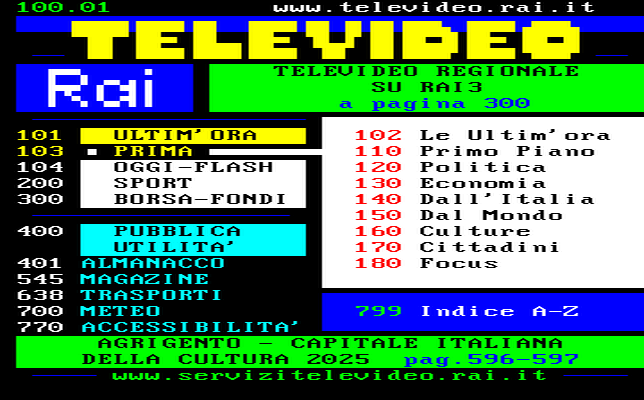Domain vs Hosting: A Jargon-Free Beginner’s Guide
Domain vs hosting: they’re not the same. Learn the key differences and set your website up for success from the start.

When starting a website, many beginners wonder about the differences between domains and hosting.
In short:
- A domain enables people to reach your site files.
- Web hosting stores the files that make up your website.
Since this topic is such a fundamental one to understand when starting a website, it’s a good idea to make sure you grasp it fully. So to help you do so, we’ll discuss exactly what web hosting and domains are, how they differ, where to acquire each, and how they work together to make your website available online.
What is a domain name?
Your domain name is the unique address people type into their browser to visit your site. It’s your site’s name and location on the internet. For example, wordpress.com is the domain of this website.

Every website lives on a physical server, or a computer connected to the internet. That server has a unique address, called an IP address, which looks something like this: 192.0.2.1. You can think of it like the street address for a website; just like you need an address to send someone a letter, your browser needs an IP address to find and load a website.
But since strings of numbers aren’t easy to remember, we use domain names instead—a simple, human-friendly shortcut that points to the website’s IP address behind the scenes. So when you type in a name like wordpress.com, your browser uses that to look up the correct IP address and bring you to the right website.
Besides making websites easier to reach, having a custom domain name also:
- Signals ownership over your domain.
- Strengthens your website’s or company’s branding.
- Describes what your business or website does.
- Establishes trust with your customers.
Because domains express so much about your website, it’s important to know how to choose a domain name that’s memorable and clearly reflects what your site is about.
It’s also important to note that owning a domain name doesn’t automatically publish a website or display content; it’s just the address that points visitors to your content, wherever it’s hosted.
For more details, we have an entire article on domain names and how they work.
How to get a domain name
If you want your own domain name, you need to purchase it through a domain registrar, or a company that manages the reservation of domains.
You’re in luck because WordPress.com is a domain registrar for over 350 domain extensions (like .com, .shop, and .blog). Simply type in your desired domain name into our domain finder tool to check for availability and price.

If it’s already taken, the tool will propose alternatives.

When you find a domain you like, simply add it to your shopping cart and go through the purchasing process.

When you register a domain, you’re not actually buying it forever; you’re essentially renting the right to use the name. To keep it, you’ll need to renew it annually or set it to auto-renew.
While it’s possible to use a registrar just for your domain and connect it to a site hosted elsewhere, you can purchase a domain as part of a website-building plan that includes hosting.
Case in point, if you get an annual hosting plan on WordPress.com, you can get most domains for free for the first year (with free privacy protection for as long as you keep your domain registered with us). After checkout, your domain will be connected automatically to your site—no extra setup required.
What is web hosting?
Web hosting is the service that stores your website files on an internet-connected computer (i.e., a server) to make them accessible to visitors. A hosting provider gives your website space on a server and handles the technical setup that connects your domain to your website.
Without hosting, your domain doesn’t display any content. But hosting isn’t just what makes your website available online; it also affects speed, uptime, security, and overall reliability.
What’s more, hosting plans vary in features like storage space, bandwidth, support, scalability, and price depending on the type of hosting you choose.
Types of web hosting
There are several kinds of web hosting, each suitable for different needs and budgets:
- Shared hosting: Shared hosting is often the most affordable hosting option because multiple websites share the resources on one server. Shared hosting is sufficient for smaller websites and hobby blogs but can quickly become a handicap if your site starts getting more traffic.
- VPS (Virtual Private Server) hosting: With VPS hosting, your website still shares a server with others, but everyone only uses their own assigned resources. This makes it a good middle ground for growing sites.
- Dedicated hosting: With dedicated hosting, your website has an entire server just for itself. Dedicated hosting is powerful but can be costly and requires you to manage the server yourself.
- Cloud hosting: Cloud hosting is a type of hosting in which multiple servers work together to provide processing power on demand. You can easily scale your site as needed.
- Managed hosting: In managed hosting, your provider takes care of technical tasks like updates, security, and backups for you. This is the kind of hosting we offer at WordPress.com.
Choosing the right hosting type depends on your website goals, traffic expectations, and how hands-on you want to be.
Managed hosting vs unmanaged hosting

Let’s take a closer look at the differences between managed and unmanaged hosting.
With unmanaged hosting plans, you primarily just rent web space. Everything else that has to do with running a website and keeping it safe and functional is on you, especially software updates, performance, and security.
With managed hosting, your provider actively manages tasks like updates and security and has an active role in making your website run well.
For example, when you host your website on WordPress.com, your plan includes:
- Automatic software updates to the latest WordPress version so you benefit from security and performance improvements as well as new features.
- Built-in security features like malware scans, a firewall, and DDoS protection to keep your site safe from threats and unauthorized access.
- HTTPS/SSL certificates that encrypt traffic between your site and visitors’ browsers and protect sensitive information.
- Speed optimization out of the box through optimized servers, caching, a content delivery network, and image acceleration. On our Business plan and above, you can also take advantage of additional features like the CDN that speeds up file and image loading.
- Your plan handles plugin and theme updates for you (unless you manually switch them off), so you’re not left with outdated or vulnerable software.
- On our Business plan and above, your website is automatically backed up, and you can restore it to an earlier version with just a few clicks if something goes wrong.
- Friendly support is included with every plan, so you’re never on your own if you get stuck.
Because of the extra help, managed hosting is often most suitable for anyone who doesn’t want to handle the more technical aspects of running a website, especially beginners. Instead of worrying about admin tasks, you can focus on creating content, connecting with your audience, building your business, and growing your website.
Domain vs hosting: Why you need both
As you’ve probably figured out by now, domains and web hosting are separate services but work hand in hand to bring your website to life.

A domain name helps people find your site, but it doesn’t hold any of your content. On the other hand, web hosting stores everything that makes up your website—text, images, layout, and everything else—but it’s useless if nobody can reach it without a domain.
Because domains and hosting are so closely intertwined, it can seem like they are the same thing or that they overlap significantly. And while that technically isn’t the case, both are required to make your website accessible, memorable, and functional.
Should you get a domain and web hosting together?
As we have established, you can often get your domain and hosting at the same place, eliminating your need to connect the two.
In fact, WordPress.com allows you to get hosting and domains separately or together. Both approaches offer different benefits and downsides.
When you get your domain and hosting from the same provider, it’s often more convenient. You don’t have to manually connect the two through changing nameservers and other technical steps—the provider sets everything up for you.
Renewals, billing, and support will also happen in the same place, and in the case of WordPress.com, you can even save money by getting a free domain for the first year of your hosting plan.
Keeping your domain and hosting separate can make it easier to manage each one individually, but you don’t need to transfer your domain to switch hosting providers. You can simply update your domain’s DNS settings to point to your new host.
If you don’t want to deal with that and prefer to streamline the process, bundling domain and hosting is often the easier path.
Final thoughts: domain vs hosting
Understanding the difference between web hosting and domain hosting is a key first step in building a website. In the end, you are going to need both—one without the other won’t get your site online.
Whether you keep your hosting and domain together or separate depends on how hands-on you want to be and how confident you are in your technical abilities. For most beginners, having them in one place makes the process faster, easier, and less error-prone.
Get your WordPress.com hosting plan and benefit from first-class managed hosting and a free domain for the first year.
Domain vs hosting FAQs
Still have questions? Here are some of the most common ones people ask about domains and hosting:
Why do you need hosting for a website?
Hosting is what stores your website’s files and lets people view your website online. Without hosting, your domain name wouldn’t have anywhere to point and no content (like pages or images) to display.
Are domains and hosting the same thing?
No, they’re different. Your domain is the web address people use to find your site (like mygreatnewblog.com), while hosting is the service that stores and delivers your actual website content.
How much do domains and hosting cost?
Domain names typically cost around $10–$20 per year, depending on the extension. Hosting prices vary more widely, anywhere from a few dollars a month to much more for renting your own server.
Can you have a domain name without hosting?
Yes, you can register a domain without web hosting, but it won’t show a website until you connect it to a hosting provider.
Can I use my domain with a different host?
Yes, you can. If you’ve bought a domain from one company and want to host your site at another, you can connect the two by updating your DNS settings. You can also transfer your domain from one company to another.
Does domain hosting include email?
Not always. Some providers offer email hosting as an add-on, or they may bundle it with your domain or hosting plan, but it differs from provider to provider.
How to buy a domain permanently?
You can’t buy a domain forever, but you can register it for multiple years at a time and set it to auto-renew so you don’t lose it.
If you want long-term ownership, WordPress.com offers a 100-year domain option and a 100-year hosting plan that includes domain registrations for a century.
Can I get a free domain and hosting?
Some platforms offer free subdomains and hosting plans. For example, you can use the free WordPress.com plan to create a site with a domain like example.wordpress.com. Annual paid plans include a free custom domain for the first year, along with reliable hosting and powerful features.
How often do you pay for a domain name?
Most domains are registered and renewed on a yearly basis. You can often prepay for several years or set up automatic renewal so you don’t accidentally let it expire.






































![Pino Allievi, Gp Arabia Saudita F1 2025: “Il miracolo di Leclerc” [ VIDEO ]](https://www.circusf1.com/f14/wp-content/uploads/2025/04/Pino_Allievi_Arabia_Saudita_F1_2025.jpg)
![Alberto Naska, GP Arabia Saudita F1 2025: “Leclerc perfetto ma è solo terzo” [ VIDEO ]](https://www.circusf1.com/f14/wp-content/uploads/2025/04/alberto_naska_gp_arabia_saudita_f1_2025.jpg)






